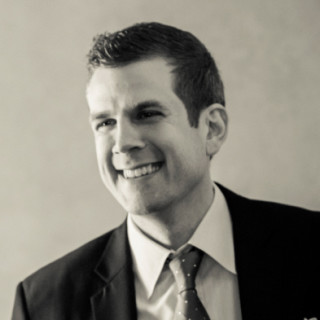
It’s the day that so many of us have been waiting for. It’s full of pomp, balloon arches, and proud mothers galore. For better or for worse, Match Day is designed to be a celebration. It’s a relative culmination in a life full of culminations.
Finally, I got into medical school! Finally, I graduated medical school! Finally, I’m done with residency! And so on ...
But, just as life cannot be peaches and cream all of the time, so too Match Day is not a carnival for everyone. There are the students that sit on the sidelines because they didn’t receive the Monday morning letter that read “relax, you made it.” While their classmates have spent all week counting down the days until they receive their glorious fate, the SOAP-ers are counting down the days left to secure a spot before a residency-less hell breaks loose.
The inbetweeners operate in much more of a grey area. Let’s say you matched, but at a program that you are not enthralled about. How should you proceed? What lessons can be learned? Where is there to go from here?
Rank List Pearls
We turn to the band Talking Heads for some introspection: “Well, how did I get here?” Some people would call the building of a rank list “an art,” but it is so much simpler than that. The entire algorithmic system is designed to take out the guesswork and strategizing, and leave you with a simple task: rank the program you want to match most as number one, the next most attractive program as number two, and so on.
Students still come forward with unfounded fears, that based on how the Match works, don’t make any sense. “I don’t want to rank my reach program no. 1, because I have a better chance of matching into a less competitive program, so I’ll put the reach school lower down.” These head games are not necessary. Just rank the programs in order.
Even more importantly, DON’T RANK A PROGRAM YOU DON’T WANT TO GO TO. It will be up to you to answer the question, “Would I rather not match at all instead of going to this program I’m not very fond of?” The former is a very tight spot to find oneself in, and the latter can be relegating oneself to a miserable couple of years. It’s not an easy question to answer, and no one can answer but you, so think long and hard about every single program you decide to rank, and understand that going to any one of them is a true possibility.
Use This As a Wake-Up Call
So, the deed is done. You’ve matched into a program you’re not thrilled with, and come to terms with the fact that your fate is sealed, and in July, you will be their intern. How do you sublimate this situation into a positive thing?
Swallow your pride, pick up the pieces, and start giving more of yourself to the cause of becoming a doctor. Your story will likely end one of two ways: you will either finish your days out at this residency you’ve matched at, get board-certified, and move on with your life as an attending, or you will transfer after PGY-1 year into a new program or discipline.
No matter which pill you decide to swallow, it absolutely behooves you to try to do better at everything. You didn’t match into a better program for a reason: either your CV/grades/test scores need improvement, or your interpersonal skills didn’t shine through on interview day. Don’t catastrophize the situation, and don’t succumb to self-pity. Channel all of that energy into making sure you get a fantastic score on Step 3. Make and strengthen connections in your medical school to professors in your specialty of choice. Find a way to get involved in some research in your chosen field.
When PGY-1 rolls around, remember to give the program a fair shake. It can be easy to go in with a chip on your shoulder and wear your frustrations on your sleeve, but that won’t help you excel here. It also won’t make anyone bend over backward to do you any favors to get you where you want to be (if you intend on transferring).
Impressing everyone around you, including attendings, ancillary staff, and fellow residents will be your ticket to ascension, no matter your end point. The path is an obvious one, but takes more effort than simply “getting by”. Be a team-player, work exceedingly hard, bring up those around you, and teach your medical students early and often.
While Binding, Nothing is Permanent
Yes, you are obligated to go to that PGY-1 assignment, but all is not lost, and nothing is permanent. You can try changing slots after one year. You can give this residency a go for two years and take it from there. Maybe you will complete a second residency immediately after the first, or experience a career change down the line. Look at the bright side: you matched. Your dream is materializing, albeit not in the exact way you pictured. But that’s all right. Put prestige aside for the time being, and work as hard as possible. Success will befall you in ways you might not have originally expected.
Brian Radvansky, MD is an Anesthesiology and Critical Care resident and blogs at the Med School Tutors’ blog. He is also a 2018–2019 Doximity Author.
Illustration by Jennifer Bogartz






